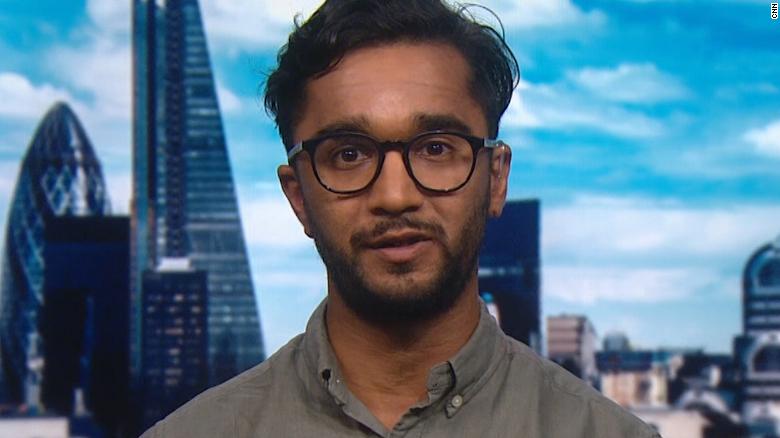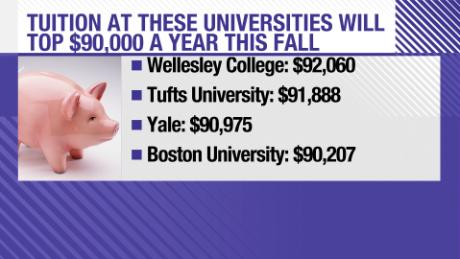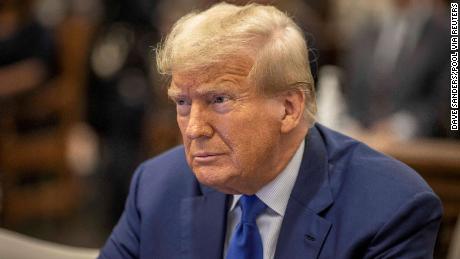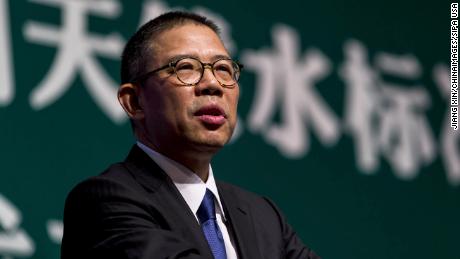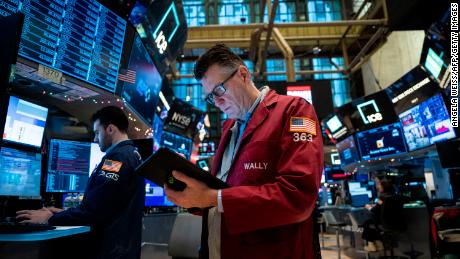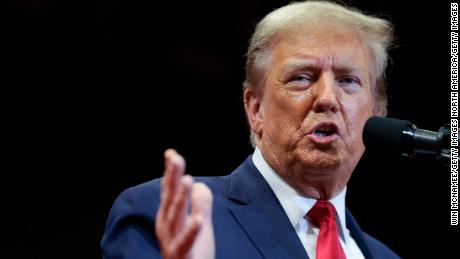London (CNN Business)After nearly four years of profound uncertainty that hobbled the economy and unnerved investors, Britain finally left the European Union. What happens next is vital for many businesses, yet the outlook isn't great.
The United Kingdom is entering an 11-month transition period during which Prime Minister Boris Johnson must race to strike new trade deals with his country's biggest economic partners. Failure would mean even more pain for an economy that's already ground to a halt.
After four decades as a member of a powerful trading bloc, Britain is striking out on its own. The first task is to decide how close a relationship it wants with the European Union, which currently buys almost half of UK exports. Johnson is intent on diverging from the bloc on key regulatory issues, saying he wants room to negotiate new trade deals with other powers, such as the United States.
Yet the more Britain diverges from the European Union, the harder it will be to trade with neighbors including France and Germany. Many British companies, having already been battered by uncertainty over Brexit, can scarcely afford new trade barriers that threaten to snarl supply chains and make their products and services more expensive.
Other things stand in the way of securing trade deals with Europe or the United States. The UK negotiating team is inexperienced, and it will be working to a very tight timetable.
"We have not done trade negotiations for 40 years," Kim Darroch, the former UK ambassador to the United States, told The Guardian on Friday. Britain has not yet published its negotiating objectives with the United States, he said, "frankly because we haven't had the bandwidth to work it out."
What happens next
While Britain severs its legal bonds with the European Union on Friday, the trading relationship won't change during the transition period that runs through the end of 2020. Johnson could ask to extend this deadline, but he has repeatedly promised not to do so.
Miscalculation would be costly. If the United Kingdom has not agreed a new trade agreement with Brussels when the clock expires, it will face significant new trade barriers. This is the "hard Brexit" that has long terrified the business community, and prompted the CEOs of companies like Airbus (EADSF) and Nissan (NSANF) to warn of dire consequences.
American companies, which have invested more than $750 billion in the United Kingdom and employ more than 1.5 million Britons, are also worried.
"We urge the UK and EU to move quickly so that US investors and exporters have the necessary clarity to grow their businesses and create even more jobs," Marjorie Chorlins, executive director of the US-UK Business Council said in a statement. "It is essential that the transition period continue until a final UK-EU agreement is concluded," she added.
The threat of new tariffs on goods trade with Europe, where there were none before, should force London to prioritize negotiations with Brussels. UK finance minister Sajid Javid, speaking in Davos last week, confirmed that a trade deal with Europe would come before the United States.
"Rather than charging headlong into a trade agreement with the United States, Britain's priorities should be stabilizing relationships with existing trade partners and regaining their trust," Sam Lowe, a senior research fellow at the Centre for European Reform, wrote recently.
Even then, comprehensive trade agreements are typically negotiated over the course of many years, not months, and experts say the best the United Kingdom can hope for this year is a deal with Europe that keeps tariffs at bay but leads to new administrative and regulatory barriers on exports of goods and services.
Analysts at Deutsche Bank say the type of bare bones deal that is possible to reach in 2020 would mean friction at the border and reduced access to Europe for the huge UK services industry. Britain's mighty financial services sector, which accounts for 7% of economic output, will almost certainly see its access to EU markets restricted.
And even this kind of limited deal will require the government to make politically difficult choices such as whether Britain should restrict access to its territorial waters for EU fishing fleets.
"Is the United Kingdom prepared to make the domestic compromises necessary to seal an agreement?" Lowe asked. "So far the government has struggled to produce answers."
A deal with the United States?
A deal with the United States may be even harder for Johnson to deliver quickly.
America, which already has a trade surplus with the United Kingdom, is not about to grant a deal that showers money on the United Kingdom without asking for a lot in return. And US demands are anathema to big chunks of the UK population, because they could mean more expensive medicines or lower food standards.
The United States will push hard to open the UK market to more agricultural exports, including chicken that is washed with chlorine and beef that is treated with hormones. It will also demand rule changes that would increase the price Britain pays for pharmaceutical drugs.
Johnson has done little to prepare the UK public for this reality.
"The United Kingdom will not get an easy ride just because of its so-called special relationship with the United States," said Lowe. "If the United Kingdom resists US demands, particularly in the area of agriculture and food hygiene, then concluding a comprehensive [free trade agreement] could take years."
US Secretary of State Mike Pompeo said during a trip to London this week that substantial progress was possible before the end of the year. But he told radio station LBC that "there will be real contentious issues around agriculture" when asked whether the United States would seek to force chlorinated chicken upon the United Kingdom.
"We need to make sure that we don't use food safety as a ruse to try and protect a particular industry," said Pompeo. "Consumers ... are going to be the net beneficiaries of these really good deals."
Additionally, the US Congress, which must approve comprehensive free trade deals, is unlikely to hand President Donald Trump a win on trade ahead of the presidential election in November. And Britain has already gone against the US administration twice recently on key issues. It allowed Huawei to help build telecoms networks in the United Kingdom and pledged to move ahead with a new tax that would hit US tech companies.
The Trump administration responded to the latter by threatening to impose tariffs on cars made in Britain, in a sign of how little the special relationship means when it comes to trade. Navigating these unpredictable waters will require a deft touch.
"President Donald Trump is unpredictable and quick to take offense, and treats trade as akin to a protection racket ŌĆö first he increases the threat, in the form of tariffs and instability, and then offers to shield you in exchange for payment," said Lowe.
What failure looks like
The state of the British car industry shows why striking sensible deals quickly is so important.
UK car production fell 14% last year, according to data released this week by the Society of Motor Manufacturers and Traders. The sector's third consecutive annual decline was spurred by trouble in key overseas markets, and a shift away from diesel cars in Europe, but uncertainty over Brexit also played a huge role.
"The fall of UK car manufacturing to its lowest level in almost a decade is of grave concern. Every country in the world wants a successful automotive sector as it is a driver of trade, productivity and jobs," Mike Hawes, CEO of the SMMT, said in a statement.
The global automakers who have built factories in Britain fear the year could end without Britain having agreed a new trade deal with the European Union. That would snarl their supply chains, disrupt production and erode profit margins that are already razor thin.
Over time, many would seek to shift production out of the United Kingdom. Some could abandon the country entirely.
"It is essential we reestablish our global competitiveness and that starts with an ambitious free trade agreement with Europe, one that guarantees all automotive products can be bought and sold without tariffs or additional burdens," said Hawes.
